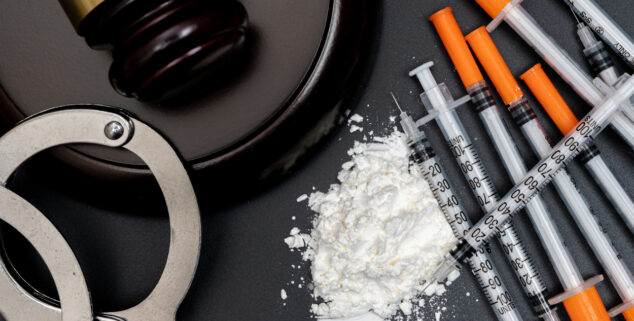Opinion
The tragic missteps of drug-induced homicide laws
 Image by Jae Young Ju
Image by Jae Young JuOPINION – I never wanted to be part of the war on drugs, but my family’s experience forced me into it. My son Joel’s battle with substance use exposed me to the harsh realities of drug policies, bureaucratic hurdles, and heartbreaking loss.
When we first realized Joel needed help, we turned to Google. The only treatment centers that appeared were the ones that could afford a strong online presence. We were desperate to save our son, unaware that free or low-cost options existed. We didn’t know about SAMHSA or other resources because this wasn’t a world we knew.
We spent $45,000 on a 30-day program that left Joel physically detoxed but still mentally trapped in addiction. When the money ran out, the center gave us a list of sober homes and wished us luck. After multiple stints in jail and rehab, Joel finally entered a state-provided program under Assembly Bill 109, which offered a more holistic approach, including mental health care, job training, and medically assisted recovery. Joel stayed sober for almost four years while connected to this program, but he eventually relapsed and died on November 27, 2017.
I share this story not just to express my grief but to shed light on the broader issue of how we treat drug users. Grieving parents naturally want someone to blame, and I understand the desire for tough penalties against those who smuggle drugs. However, the current push for Drug Induced Homicide (DIH) laws is misguided and won’t target the real criminals.
These laws could make a 15-year-old who sells pills on Snapchat or a mom who shares drugs at a BBQ into “dealers” facing homicide charges. While such laws may deter casual sellers, they won’t stop someone with substance use disorder (SUD) from using and selling drugs. My son, who both used and sold drugs to support his habit, died with $600 in his pocket. He was part of a tragic cycle that DIH laws won’t break.
By the time drugs reach the user, they’ve passed through many hands, making it impossible to target the true source. Those suffering from SUD often resort to desperate measures like robbery or prostitution to feed their addiction. They already face life-threatening risks daily—another law won’t change that. My son, who also had heart disease, was denied a pacemaker because the surgeon didn’t want to waste it on a “junkie.” After being discharged, homeless and unable to find help, Joel returned to drugs, knowing it could kill him. If death wasn’t a deterrent, a homicide charge won’t be either.
Proponents of DIH laws compare them to DUI laws, but this is a false equivalence. Even DUI laws, which are among the most commonly prosecuted, fail to prevent repeat offenses.
As we continue the war on drug users, we must ask: Who wins? Simplistic solutions to complex problems only lead to overzealous prosecutions that destroy lives. We, the grieving parents, understand loss deeply. But anger and revenge won’t bring our children back—anger and revenge only consumes.
That’s why we advocate for Recovery Oriented Communities of Care. Families shouldn’t have to scour the internet for resources; these should be readily available in every community. It’s time for our governments at all levels to recognize that the war on drugs failed before and it will fail again.
As the panic over the “fentanyl crisis” mounts, we risk returning to outdated, ineffective strategies. Instead of performative policies that seek to punish, we need evidence-based, community-focused solutions that seek to help and rehabilitate. When the next deadly drug emerges, we must remember that drug users are not the enemy. Common sense must prevail.
Pattie Vargas is a mother, author, and a Certified Grief Counselor through The Resilient Journey and the Partnership To End Addiction.
Want to see more stories like this? Sign up for The Roundup, the free daily newsletter about California politics from the editors of Capitol Weekly. Stay up to date on the news you need to know.
Sign up below, then look for a confirmation email in your inbox.

Leave a Reply